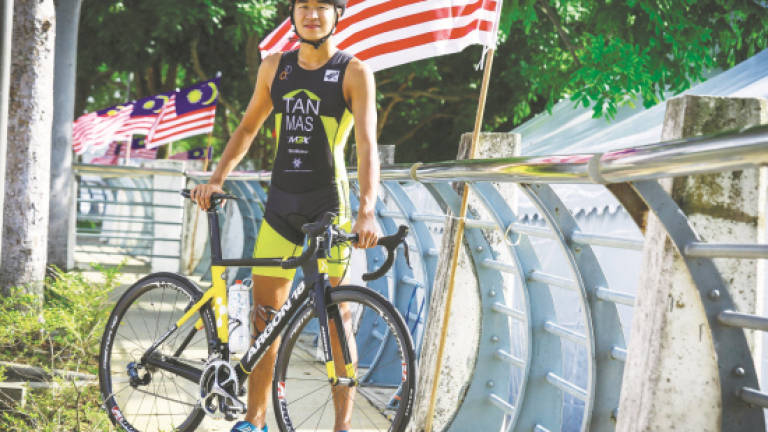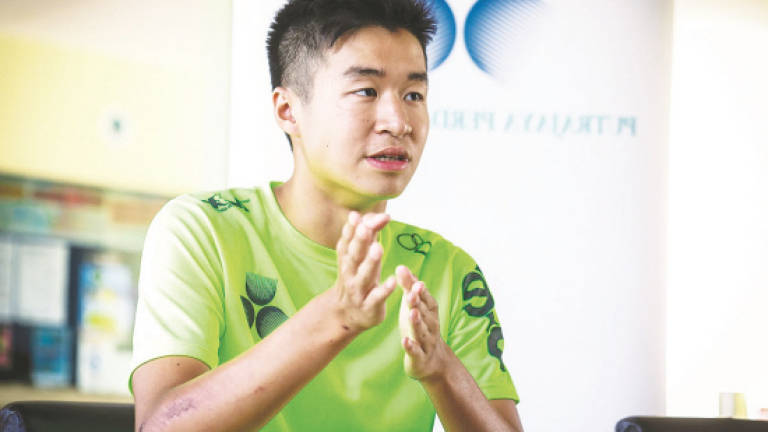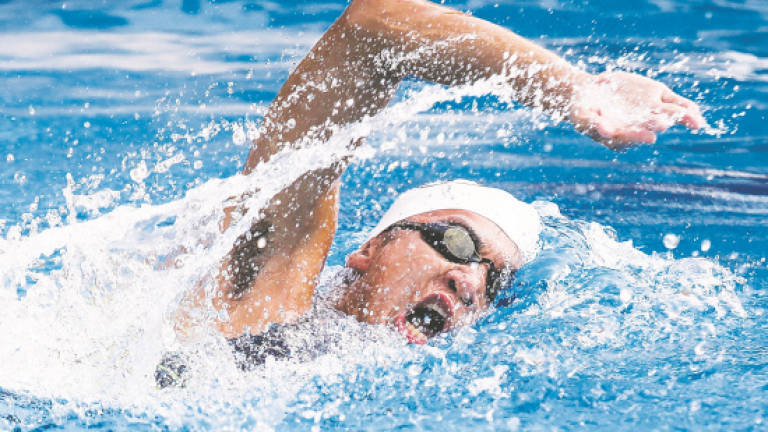Navigating the edges of human endurance



IF it were not for the scars and scabs that occupy parts of his body, Ryan Tan would look like any other unassuming young adult, yet the "war scars" tell another story, one of endurance and persistence, forged through willpower and familial love.
"My family, especially my parents, have supported me all the way, in sports and in studies. They willingly send me to training every day, all the way from Subang to Putrajaya," Tan claims, before proceeding to repeatedly make it clear throughout the interview that he would not be where he is without his family.
Revealing that his streak of competitiveness does not end nor begin at sports, Tan wears the streak of 8As he attained for his IGCSE as proudly as he holds the achievements in the more physically-driven facet of his life, with both being emblematic of his drive to excel.
Bolstered by his family's support, under the tutelage of Tri-Amateur Triathlon Club's Team M3X coaches, as well as financial and moral support from Putrajaya Perdana Berhad (PPB) in organising training, camps, races and triathlon events, the 18-year-old recently made his 29th SEA Games debut as the youngest Malaysian sportsman in the triathlon category held on Aug 21.
Can you briefly explain what triathlons are, and what exactly you were required to do at the 29th SEA Games triathlon?
Triathlons are a series of three different sports – swimming, bicycling, and running – done non-stop in a single event. Swimming is conducted in open-water, with various distances in triathlons, but in general, it's the shortest out of the three.
On the bike, it's an all-out cycling race. Triathlons are unique because the style is different from the three sports individually.
For SEA Games, I did the standard distance, which is 1.5km of swimming, 40km of bicycling, and 10km of running.
Is there a reason you've chosen to be a triathlete over a swimmer, cyclist or marathon runner?
I'm not good at them individually, but when it's done together, I can pull it off quite well.
For me, as a swimmer and a runner, I might as well kill three birds with one stone and do everything together. I've also been in merentas desa (cross country running). I wasn't the best but it was a good experience.
As triathlons are both physically and emotionally draining, how do you keep yourself sane throughout any triathlon?
To keep sane, for me, it's the opposite – consistently training and participating in triathlons sustains my sanity. If I stopped training for one week, I would go insane, because I have nothing to do at home. When I'm sick or injured, it's really, really boring, because there's nothing to do.
How do you prepare yourself mentally?
My coach taught me a technique, where I spend the week before a race just simulating the race day in my mind. Like anticipating who will be with me while biking, what might not work, where we will "break away" from "drafting" – a method of racing behind one another to reduce drag. So it's mentally preparing myself every night, especially if it's an important race.
How much of your time is dedicated towards training, recovery, and leisure?
I spend most of the day training, every day, almost non-stop, with one rest day, which I still end up doing something like jogging.
So, really, there is almost no rest in a sense. In terms of leisure, there is more time on the weekends, as the coach's schedule gives room for activities like dinner with the family.
What is the diet for a triathlete like?
We carbo-load – maximising energy through carbohydrates – a week before, basically eating like an athlete; half portion carbohydrates, a quarter protein, and a quarter vegetables or fruits. It's really important, and I learned the importance of nutrition the hard way.
If I don't keep myself properly hydrated or following a good diet, my performance will drop. For instance, when I was part of a training camp in Taiwan, there wasn't good nutrition – living off hamburgers, fried rice – and before the end of the first week, our performance declined.
If you could go back in time, would you do anything differently, be it for sports, studies or personal life?
I don't have many regrets. In terms of studies, I wish I had worked harder when it came to balancing sports and studies, especially when I was 16 years old.
As for the mistakes I made when it came to sports, I can live with it because mistakes are a part of learning.